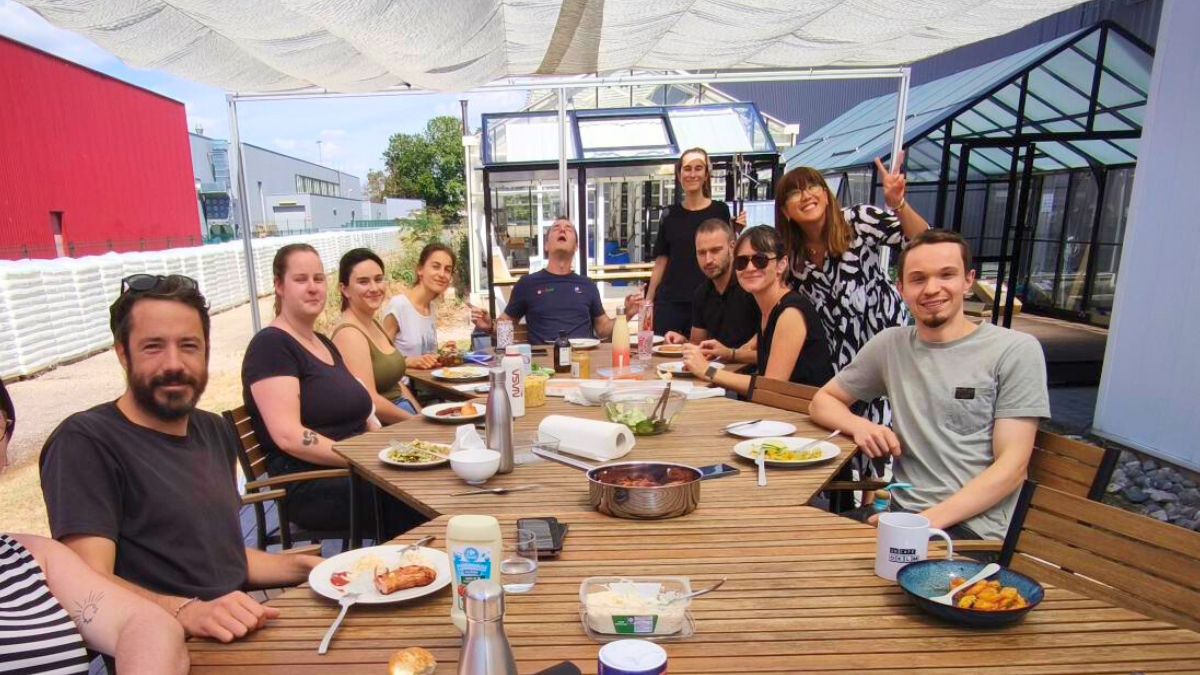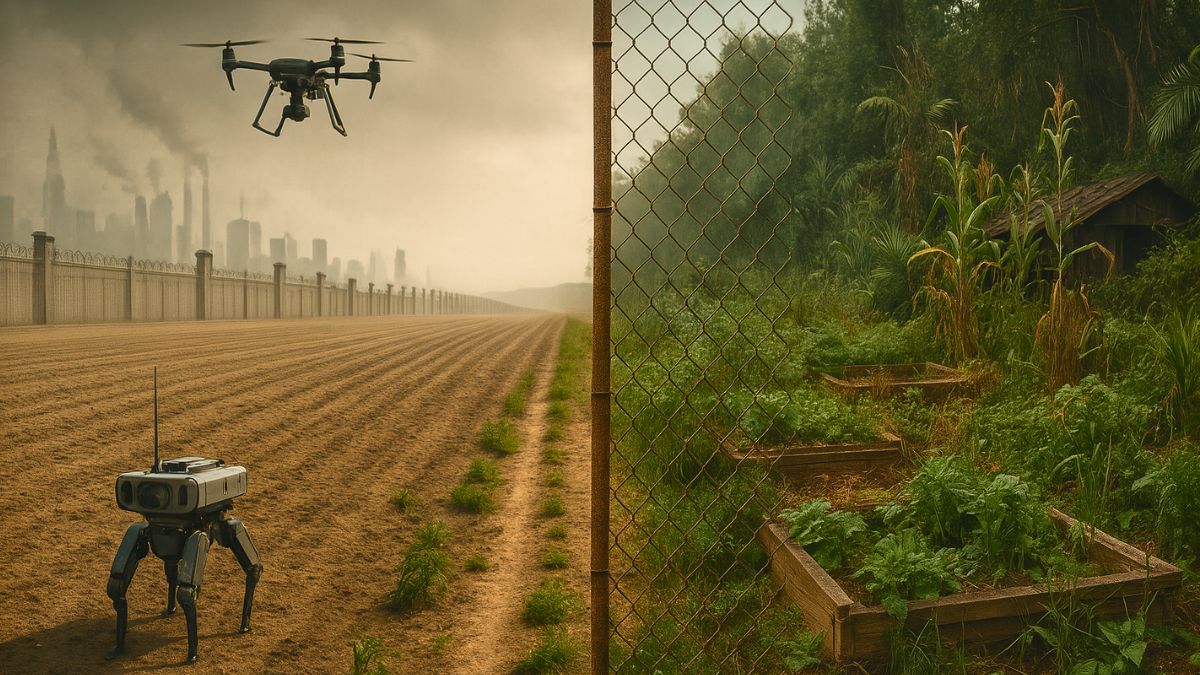Or: When agriculture starts to look like a dystopian movie.
July 14, 2025: Team barbecue at Myfood. The sun is blazing, the tomatoes are juicy, and the atmosphere is relaxed. And like so many times recently, the conversation shifts to something a little heavier: current events.
That day, we learn more about a new French agricultural reform: the Duplomb Law. Another step toward centralized, technocratic agriculture—drifting further and further from nature.
But this time, something stood out: the public response was huge.
Over 1.7 million people signed a petition against the law. A record in France. And yet, the reform was pushed through anyway.
We sigh. We look at each other. And someone says: “This is why we chose another path ten years ago.”
Then someone jokes:
“Anyone watched Mad Max recently?”
And that’s where it really starts.

One teammate says they rewatched Mad Max: Fury Road the night before.
Desert landscapes, water shortages, survival…
It hits differently when the topic of the day is agriculture.
We let our minds wander. What if nothing changes? What would farming look like in 100 years?
We laugh a little. But the chill is real.
“Produce more, at all costs.” Monocultures, synthetic fertilizers, pesticides. Soils are depleted, water becomes scarce, and public health declines. Cancers linked to pesticides multiply. Compensation funds are overwhelmed—and then quietly shut down.
Water reserves collapse. Without pollinators, orchards vanish. Small farms go bankrupt and are replaced by massive, fully automated agribusinesses. Farmland becomes a hyper-digitalized zone. Meanwhile, “free zones” become fragile sanctuaries of what’s left of wild ecosystems.
Every seed is patented. Replanting becomes illegal. Drones, sensors, surveillance—everything is monitored. People living in natural zones are marginalized or criminalized. Some eat synthetic food; others scrape by, scavenging what nature still offers. Basic resources and healthcare disappear from political agendas.
A loaf of bread costs two days’ wages. Food is rationed.
AI-controlled urban gardens become mandatory—for the cities that can afford them.
Soils are dead. Insects gone. Ecosystems collapsed.
The world is split in two:
– One side: artificial, sanitized, heavily policed.
– The other: barely surviving.
And then someone smirks: “May the odds be ever in your favor. Happy Hunger Games.”

No.
This isn’t a prophecy. It’s a warning.
And that petition? 1.7 million people in France stood up to say: “This isn’t the future we want.” The movement included farmers, scientists, parents, young people… everyone. And yet, the law passed.
So we keep speaking up.
And we keep planting.
Here’s what we believe in:
Do you have these kinds of conversations? At lunch, over coffee, around a salad?
Or is it just us French people, always getting emotional about tomatoes and politics?
At Myfood, we laugh—even when the world seems to be unraveling. But more than anything, we act.
This future is not set in stone. It’s still being written—today, with every seed, every meal, every decision.